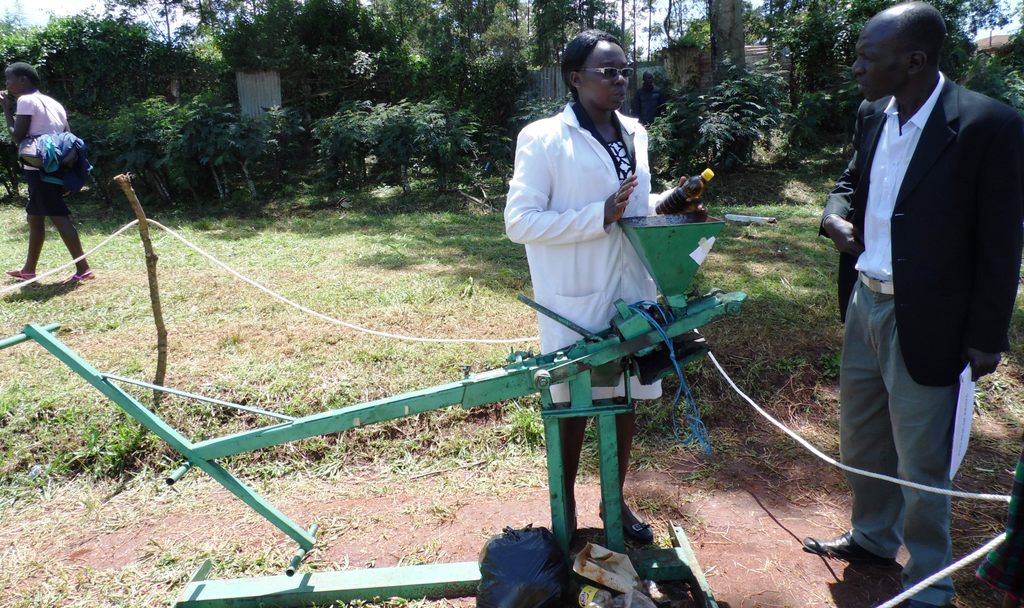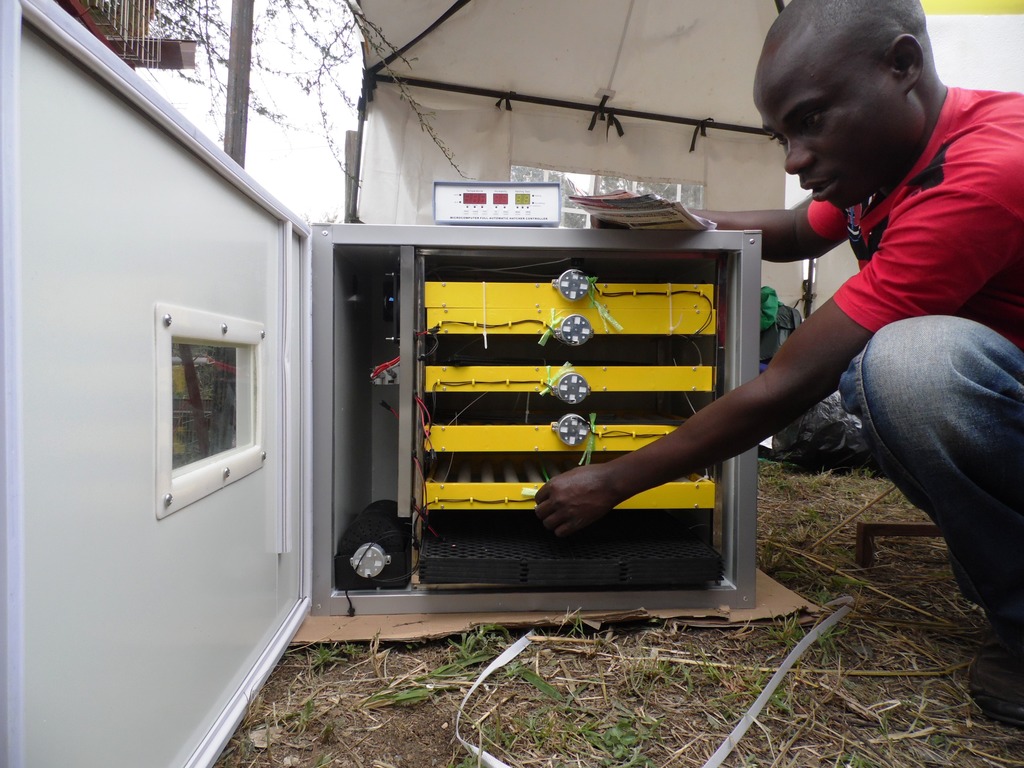KALRO's Damaris Kagendo holds a bottle with avocado oil as she explains to a farmer how the Oil Press Manual Extractor works on October 29, 2016 during the Kitale ASK Show. The easy to use machine helps farmers press oil from ripe avocados for sale. PHOTO BY LABAN ROBERT.
Avocado farmers, who have poor access to markets, can extract cooking oil from ripe fruits for sale to save on rotting using a cheap manual pressing machine from Kenya Agricultural and Livestock Research Organisation, KALRO.
The machine extracts pure cooking oil from ripe avocados, which can be packaged and sold upon approval from regulatory authorities like Kenya Bureau of Standards.
The Oil Press Manual Extractor does not require electric or fuel energy other than that of the farmer ‘crashing’ the ripe part of the avocado through the funnel-like chamber.
Damaris Kagendo, a KALRO officer in Kitale, said besides helping the farmers in boosting earnings, the extractor could shield them against rotting losses when there is no ready market for the produce.
READ ALSO: Central Kenya avocado farmers enjoying export opportunity
A farmer has to manually remove the skin and the seed of the fruit to remain with the green or yellowish pulp.
“Half a litre of the oil fetches about Sh90. Although the determination of the shelf-life has to be done after laboratory tests, the oil does not require any preservative to prevent it from going bad. And its life is longer than a ripe avocado that rots in a day or two,” Kagendo said.
READ ALSO:Kenya takes to the sweet taste of the avocado market
The machine separates the oil from pulp and the residue remains in the pressing chamber while oil exits through a downward facing outlet for filtering. The filtering chamber is separate. But a special sterilised white clothing can also be used to remove impurities from the oil for packaging.
At least 10kg of ripe avocado pulp can give four to seven litres of the oil, depends on the quality of the fruits used.
Besides being used for cooking and as butter, the oil is also a good skin ointment product.
KALRO sells the machine at Sh40,000.
For more details, please call +254733812953
Write comment (1 Comment)


















